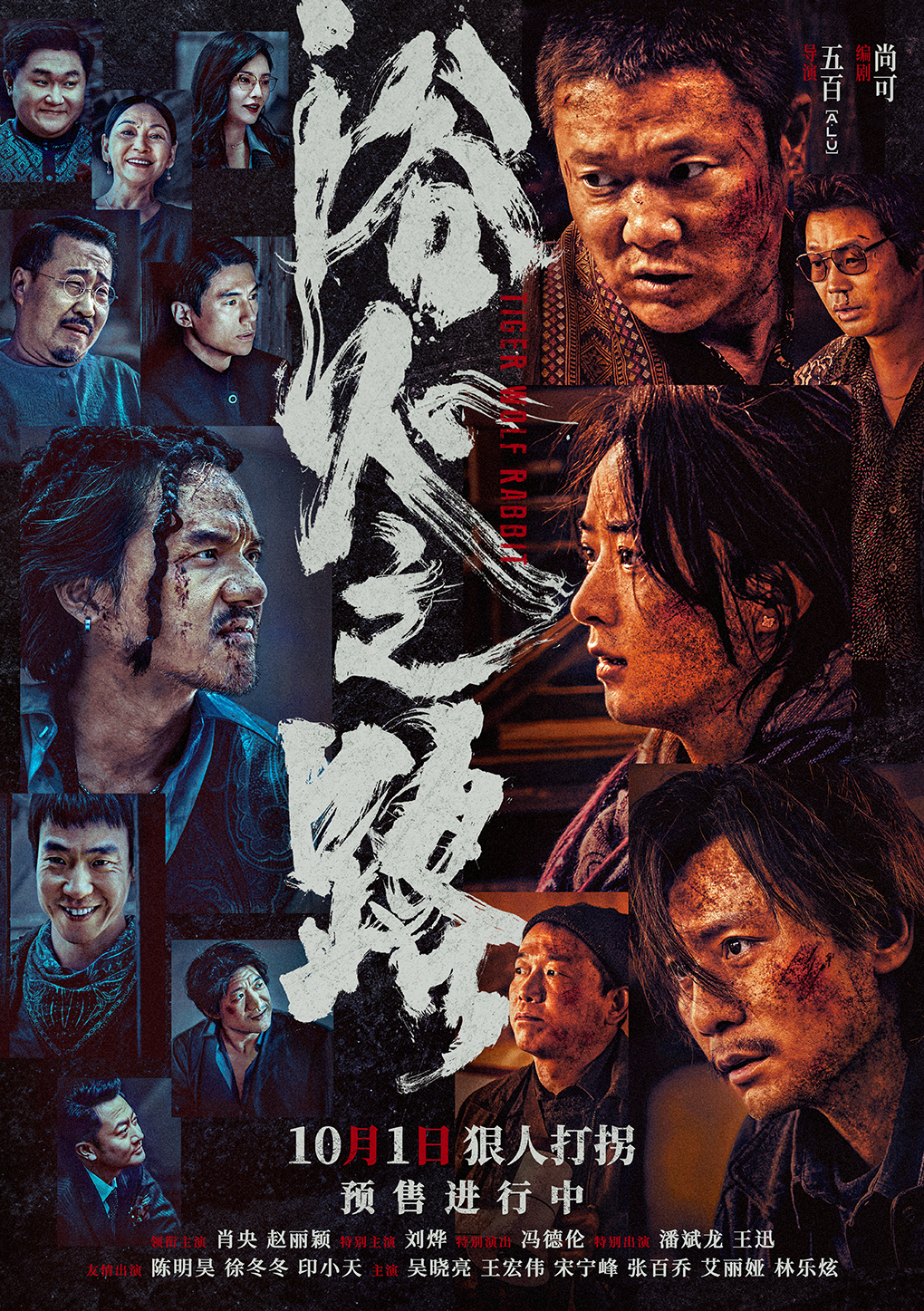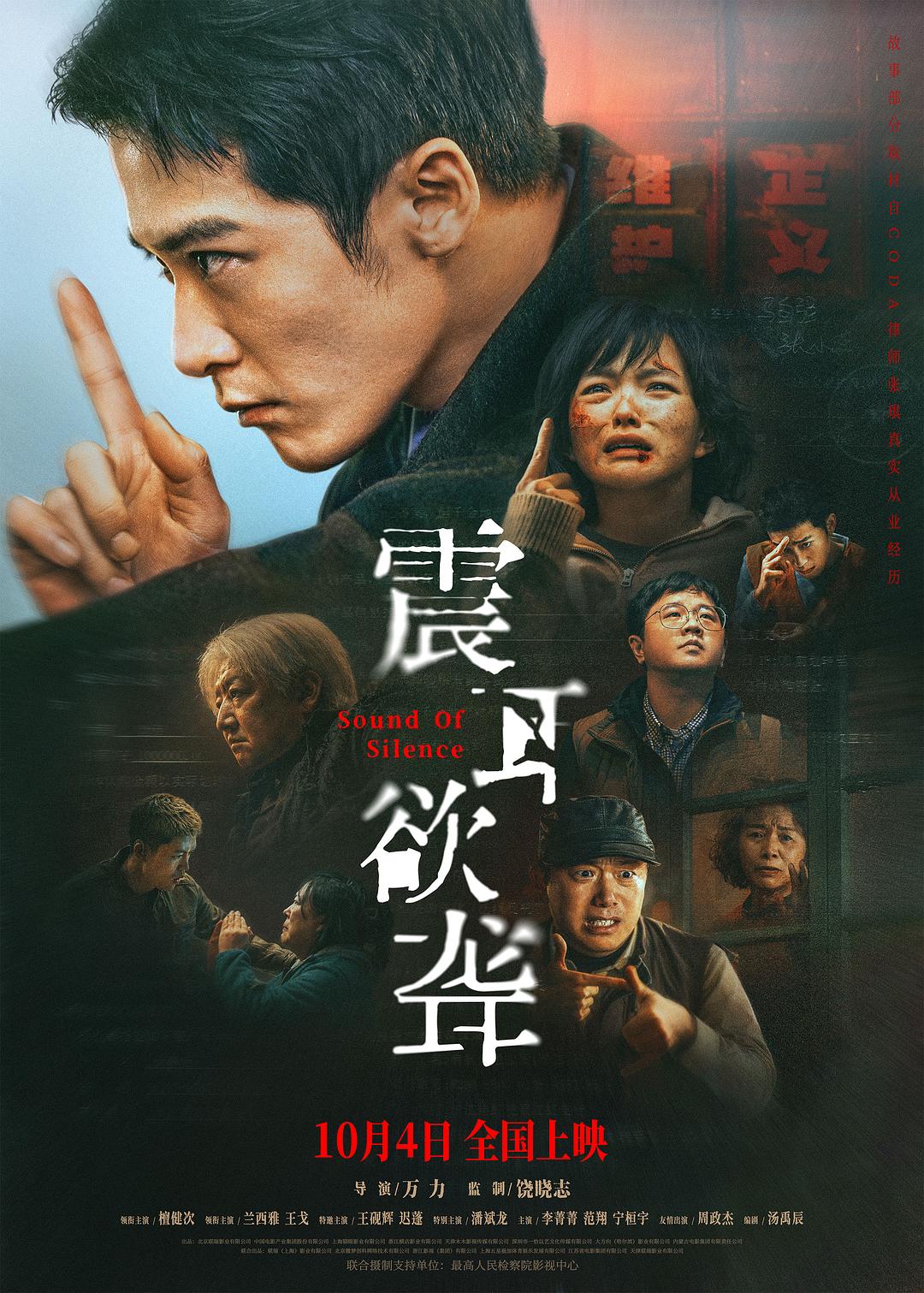
Note: This article contains spoilers
"The Road of Fire" is a film that stands above the passing grade.

This is a multi-character drama, where several supporting roles shine, making it a commendable ensemble piece.
It tells the story of three protagonists, whose paths rarely cross, who come together through the shared trauma of their children being abducted, uniting to confront human traffickers. The film maintains a constant buzz, marked by the characters' distinct personalities and emotional entanglements, all wrapped in a collective sorrow of "we have all lost children," thus captivating the audience’s attention from start to finish.
At least in the first two-thirds of the film, "The Road of Fire" presents a tone that balances commercial appeal with realistic texture, interlaced with themes of crime, violence, the struggles of the underclass, dark humor, and even existential insights, creating an atmosphere that feels quite lively. Its overall style resembles Korean crime films that never let the audience feel bored—having invested considerable effort to portray the psychological pressures of its characters while also orchestrating some lively external crises that are both interesting and gripping. Some segments even evoke memories of Ning Hao's film "Unmanned Area," with its striking supporting cast and ensemble design—particularly since the scriptwriter of this film was also one of the screenwriters for "Unmanned Area."

The overall stylistic design of this film might have drawn references from various Korean films, such as Xiao Yang's exaggerated attire.
However, in the last third of the film, due to some overly fantastical plot elements, the sense of realism that the writers and directors had worked so hard to build seems to crumble, falling into the realm of cheap melodrama. The more artificial the narrative threads become, the more one cannot help but question whether the theme of "finding family" is intended to seriously portray human suffering or is merely a vehicle for eliciting tears from the audience or promoting vigilante violence. For instance, if the film was not about "finding family," but rather about three individuals embarking on a journey to "collect debts," would most of the story's plot still hold up?
This contradictory perception suggests that the film's handling of certain segments is clearly excessive and is ultimately the reason why "The Road of Fire" fails to earn unanimous acclaim from viewers.

Liu Ye often makes you forget he is Liu Ye in this film, showcasing many breakthroughs.
One particular plot point is quite striking: a perpetually optimistic "finders' group leader" encourages grieving parents to keep faith, unite, and help each other, believing they will eventually find their lost children. This painfully earnest little character, however, jumps off a bridge to commit suicide upon receiving a phone call informing him that "his child is dead."
This sudden twist indeed helps the audience understand the immense psychological pressure that parents face when losing a child, who are on the brink of mental collapse. Yet from a logical standpoint, confirming the death of a child they have searched for over many years with just one phone call seems hasty, doesn't it? Any parent who has been searching for their child would likely need to see the remains, even if only ashes, before they could truly give up hope.

Zhao Liying’s performance stands out significantly compared to many actresses of her age. Please refer to her as an acting powerhouse from now on.
Similar plot devices pursuing overly visceral effects occur successively in the last third of the film.
For example, a crime boss who controls a smuggling empire is busy finding a wife for his foolish son—just to bring the female lead into this subplot. This foolish son has feigned ignorance for years to avoid confronting his father's crimes—only to be swayed by the female lead within just two hours of meeting. Then there's a small-time thug who would normally be arrested by the police but is instead struck by lightning to validate the notion of poetic justice...
These increasingly absurd and even childish plot developments cast doubt on the sincerity of the filmmakers regarding the "find family" theme. Even if the film ends with a thematic song or a public service message like "Baby Come Home," it may struggle to shake off any cheap impressions.

The film features some deliberately designed scenes that emphasize a sense of violent shock, such as killing in front of a Buddha statue.
With such doubts in mind, revisiting the earlier parts of the film and the characters inevitably leads to deeper reflections on their rationality. What exactly is the film trying to convey? For example, can former police academy instructor Zhao Zishan (played by Liu Ye) really justify his moral collapse and resort to illegal means, seeking revenge upon human traffickers with ruthless violence just because he lost his child? Or what kind of absurd life did the mother Li Hongying (played by Zhao Liying) lead before allowing her husband to sell their biological daughter, even if she later regrets it deeply? Moreover, does the story's initial protagonist, Cui Dalu (played by Xiao Yang), who serves four years in prison for offenses unrelated to his child’s disappearance, truly evoke sympathy?

In some realistic details, the mental pressure on parents searching for their children evokes deep sympathy. It somehow excuses the film's frequent portrayal of violence.
Within this ambiguous moral context, the film inadvertently glamorizes the protagonists' actions, suggesting their "faults" are mere unintentional missteps. Under the overarching theme of "losing a child," extreme emotional reactions seem forgivable, as the pain of losing a child is beyond most people's comprehension. Thus, inflicting personal revenge upon wrongdoers can be morally rationalized. The truly unforgivable ones are the traffickers who sell children. The conclusion sees them being viciously dealt with—throats slit, fathers and sons perishing in concrete pits, or struck dead by lightning—never given the chance for legal recourse.
Upon reflection, these plot elements might evoke a sense of discomfort. Even if the three lead actors portray their characters' pain compellingly—gaining many sympathy points from the audience—the drive for a certain "thrill" leaves one perplexed about the rationale: why must the crime lord jump into a concrete pit to save his son? This forced lowering of character intelligence resembles the “thrill” found in short dramas about wealthy son-in-laws and fails to belong in a serious narrative such as "finding family," which deserves more profound treatment.

The film features a certain exquisite harshness in its font and chapter designs. The portrayal of various natural environments throughout the film subtly reflects a raw, organic aesthetic.
Of course, if one doesn't mind how the protagonists' illegal actions passed through the censorship system, or if they overlook certain overly dramatic parts, then the film can indeed be quite an entertaining watch. After all, most ordinary people harbor a deep rage against traffickers, wishing they could make them pay dearly. The transformation of the three protagonists from mutual disdain to shared life-and-death bonds evokes some pathos. "Finding family" is their commonality, with empathy and mutual assistance providing them with essential support—even the act of "rescuing just one child," even if not their own, can instill a bit of hope to carry on in a desperate life.
While the violent methods are far from commendable, there’s a glimmer of hope in "The Road of Fire" as the quest for lost children can lead to a "rebirth," even if only a tiny chance of success remains. Just like the film's English title "Tiger, Wolf, Rabbit," we must adopt certain attitudes towards life; albeit most times as solitary wolves and occasionally as furious tigers, we might find new paths to survival even if we’re merely fragile rabbits. As the film strives to portray, villains often meet dire fates, yet the protagonists, by choosing the path of goodness, can reconcile with their inner turmoil and achieve peace within themselves, even if their children remain unfound.


